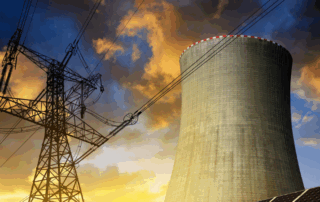Stranded Costs: Understanding Their Impact on Energy Deregulation
Stranded costs are a hidden but significant factor in the shift from regulated to deregulated energy markets, impacting both utilities and end users. For businesses and brokers, understanding how these unrecovered investments are charged to ratepayers is essential to making informed procurement and budgeting decisions in competitive markets.
Advanced Energy Storage Technologies: Powering The Future Of The Grid
Advanced energy storage technologies are reshaping the way businesses and grid operators manage electricity, offering new tools to store, dispatch, and optimize clean energy. As grid demand rises and renewable generation expands, these systems are becoming essential for improving reliability, cutting costs, and supporting the transition to a more resilient energy future.
Solar PPAs vs. Renewable Energy Supply: Which Is Better For Businesses Looking To Go Green?
Businesses exploring clean energy have two main options: solar power purchase agreements (PPAs) or renewable energy supply contracts. Each has unique costs, benefits, and sustainability impacts. Understanding how these strategies differ is essential for choosing the path that best aligns with your organization’s energy, financial, and renewable goals.
Behind-the-Meter (BTM) Energy Resources & Customer-Side Energy Control
As energy costs rise and grid reliability concerns grow, behind-the-meter (BTM) energy resources are becoming an attractive solution for many businesses. Technologies like solar, storage, and combined heat and power (CHP) allow companies to generate, manage, and control their own energy. In this article, we’ll dive into the different types of BTM assets, their benefits, and key considerations for businesses exploring on-site energy solutions.
The Role of Natural Gas In Supporting Decentralized Grids
As decentralized grids and microgrid technologies continue to grow, natural gas is playing an increasingly critical role in supporting energy reliability and independence. By complementing intermittent renewable resources like wind and solar, natural gas generation helps stabilize decentralized systems. In this article, we’ll explore how both conventional and renewable natural gas (RNG) are shaping the future of distributed energy networks.
Energy Arbitrage In Electricity Trading: Strategies, Opportunities, and Risks
Energy arbitrage is reshaping how participants approach electricity trading by leveraging price differences across time and location. Whether you're a sophisticated trader or a commercial energy buyer, understanding these strategies can help you better navigate market volatility and unlock potential savings.





